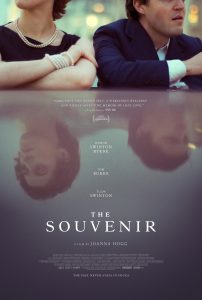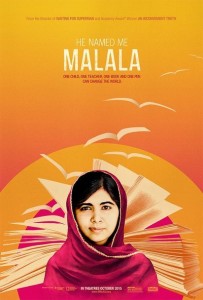Olivia Martin-McGuire‘s documentary debut China Love is a thought-provoking glimpse into China, told through the lens of its pre-wedding photography industry. While Westerners may consider this a novel concept, Martin-McGuire reserves judgment and lets the Shanghainese subjects of her film explain what this ritual, along with ideas of romance and the Chinese Dream, means to them.
Among those interviewed are Allen Shi, the savvy entrepreneur who owns the largest pre-wedding photography business in China, and Viona, a recently married woman who shoulders the demands of a family and a culture that expects so much of her at such a young age.
An Australian expat who has lived in China for four years, Martin-McGuire respectfully plays the role of an outsider looking in. What results is a fascinating film that ends up delving into Chinese history, culture and social customs.
In the lead up to film’s launch in Australia, Kevin Hawkins chatted to filmmaker and photographer Olivia Martin-McGuire about China Love, her storytelling process and being an Australian in China.
K: How has the response been to the film so far? Have Australian audiences reacted differently to Chinese audiences?
O: The response has been very warm so far. Yes they have been different.
Australian audiences have remarked that they never knew these things about China. Most people had seen Chinese wedding photos in the streets of Australia but never realised it had this weightiness behind it. I think there is a sense that this is a softer version of China than they are used to seeing.
Whereas the Chinese response has had two main types. One response is about their own grandparents and how it makes them think of them very deeply, what they went through and also how special elderly people in China are. The other main response is about Viona. Many Chinese women living in Australia said to me how much they related to her story. How difficult it was to manage the pressure back home but also the traditions within themselves alongside the individualistic nature of Australia. Like being caught between two worlds.
Pre-wedding photography is the common thread that ties this film together, but your documentary ends up exploring so much more about Chinese culture and history. When you began making the film, did you realise it would take on so many dimensions and perspectives?
I was worried that it might not have the layered depth we needed to make it empathetic. It could easily have been a sensational piece that was pure entertainment. This worried me. I was worried about being a white privileged woman just pointing a finger at China. I was searching for the heart of the story.
Certainly with Allen we tried very had to cut it with empathy and also to help understand Viona’s struggle. I think in today’s age we are encouraged to make sweeping judgments very quickly, from quick grabs of a story that is sensational or a swipe here or there. I think this is a dangerous way of walking through the world and creates more disharmony between us and them. After all we are all born from the same primordial soup.
I have a strong affection for China having lived there for four years and also having spent a lot of time visiting and exhibiting in China as a photographer in my twenties. I wanted to try to offer a window into why the pre-wedding phenomena was what it was – what was behind it and why China is the way it is now – as best as I could under the time frame I had.
I feel I captured an artist’s sketch of a very complex country – always trying to circle around the heart, love, marriage, family, spirit and the China Dream.
Because of the time constraints we chased all our characters simultaneously looking for the answers above. In the beginning I had no idea I would end up with five different story lines but, in a way, it is also reflective of the polarities and whirlwind in China now too.
I admire the way you presented the pre-wedding photography industry in an objective way without necessarily layering the film with your own personal opinions or judgment – how did you find your own opinions change during the filmmaking and interview process?
I try not to have too many personal opinions generally. I am philosophical by nature. How can I judge China? I am merely a foreigner who is not inside the web. I admire China and I stand by some of the things I witnessed as being humbling.
From growing up in a very individualistic Western culture, I feel we miss out on the connectedness that China displays. In China they put each other first, they are fiercely loyal to their family, communities and elders. Yes, I acknowledge this is not always great for the individual but for the greater community I felt humbled. Herein lay a concept I felt interested in: this rise of China and the East and what they might have to offer in a Trump period of the West, perhaps.
You spent a lot of time with Allen Shi during the filming. What did he make of the film and the way he was portrayed?
Hi assistant Eric came to the premiere and loved it. Allen is such a jet setting go-getter it is hard to get a one hour gap with him. He seems to have really enjoyed what he has seen. I am not sure if he has finished the film yet but (Eric and him) loved being involved.
Do you think pre-wedding photography will ever make it big in Australia or other Western countries?
It is already huge for Chinese couples coming to Australia and living in Australia. I don’t know about the fantasy backdrops. I think this moment in history where people dress into a fantasy role will change soon. I think this is a special glimpse into a moment in history where the past is really rubbing up against the future in China. That is why China is so interesting, there has never been such rapid growth anywhere else, so we have this opportunity to look at time differently.
A writer once said to me that in China the generation gap was so extreme it was like every adult now had been brought up by their great grandparents. Those two generations in between were skipped in the rapid changes and so the tension between the past and the future is incredible. The dream (which we witness in the fantasy photos) is changing rapidly too.
What’s the next film project you have in mind?
I have a few that I am working on that I cannot mention yet but watch this space. After making China Love (as my first film) I feel so much more skilled up and confident and can’t wait to get stuck into the next story!
China Love is in selected Australian cinemas through Demand.Film. See here for session times. If you can’t find a location near you, you can host your own screening and sell tickets via your social media channels to your mates and colleagues.
Read Kevin Hawkins’ review of the film here.




